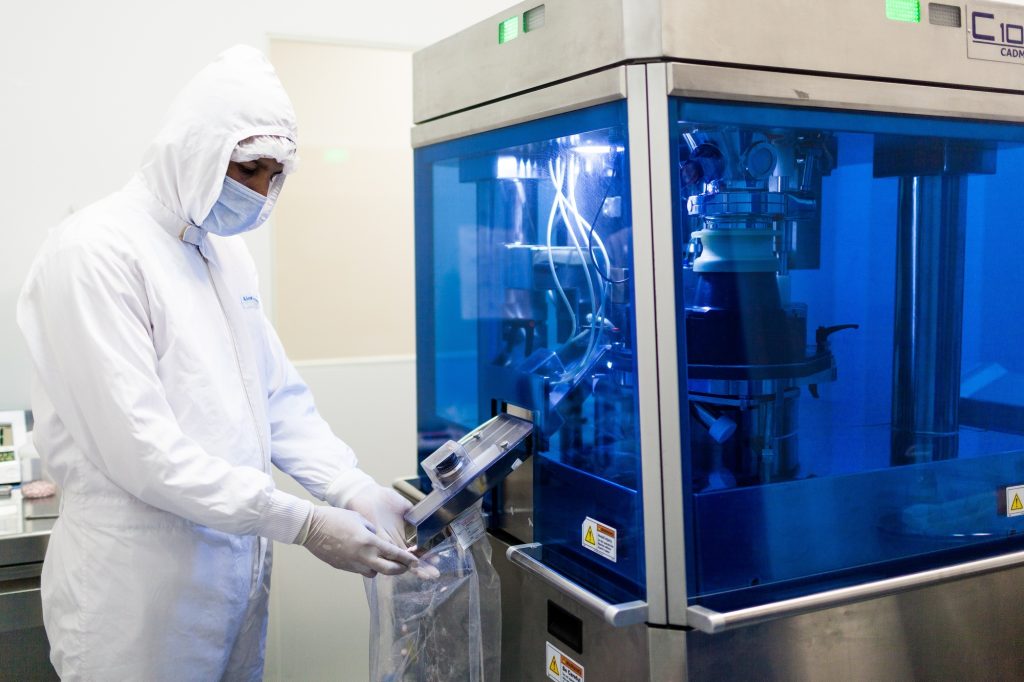Exploring the Rising Wave of Marine Technology in the Heart of the Atlantic
Portugal’s reputation as a sun-kissed tourist destination often overshadows its growing prominence in the high-tech world—especially in the arena of marine technology. But thanks to the country’s strategic coastal location and centuries-long maritime heritage, a new wave of innovation is poised to redefine Portugal’s role on the global tech stage. From wave energy converters to underwater robotics, Portuguese entrepreneurs and researchers are working diligently to transform the Atlantic Ocean into a launchpad for cutting-edge technological solutions. In this article, we’ll dive deep into the marine tech scene—sometimes dubbed “Blue Tech”—shedding light on the startups, universities, and governmental strategies propelling Portugal to the forefront of this rapidly evolving industry.
1. Why Blue Tech Matters to Portugal
Portugal has one of the longest coastlines in Europe, stretching nearly 1,800 kilometers (roughly 1,100 miles). Surrounded by the Atlantic on its western and southern borders, the nation has historically depended on the sea for trade, travel, and food. Today, the ocean still plays a significant part in Portugal’s national identity, but also holds untapped potential for sustainable development and technological innovation. Recognizing the dual need for economic growth and environmental stewardship, Portugal has identified the “blue economy” as a core pillar of its future.
A Confluence of Opportunity
- Maritime Tradition: Portugal’s storied history as a seafaring nation provides a rich legacy of maritime knowledge and expertise.
- Government Support: Strategic documents like the National Strategy for the Sea 2021–2030 underscore the government’s commitment to fostering ocean-based research and industry.
- University Research: Leading institutions such as the University of Lisbon, University of Porto, and Nova University have dedicated marine science research centers that collaborate with the private sector to develop innovative solutions.
- International Partnerships: Access to European Union funding and international research networks enables Portuguese startups to fast-track the development of pioneering marine technologies.
Against this backdrop, marine tech companies are springing up along Portugal’s coast, each with a shared objective: harnessing the ocean’s potential in ways that are profitable, scalable, and sustainable.
2. Harnessing the Ocean’s Power: Wave and Tidal Energy
When it comes to renewable energy, Portugal’s wind and solar capabilities often steal the spotlight. However, wave and tidal energy have quietly been gaining traction. With the Atlantic providing an almost constant stream of waves, Portuguese entrepreneurs and researchers see a golden opportunity to turn the ocean’s kinetic energy into electricity.
Wave Energy Converters: The Next Frontier
Wave energy converters (WECs) come in various forms, from oscillating water columns to point absorbers. These machines convert the up-and-down motion of waves into electrical power. Portugal, with its consistent wave climate, is an ideal testing ground:
- Peniche & Pico Testing Sites: Coastal areas like Peniche (near Lisbon) and Pico Island (in the Azores) have become living laboratories, hosting pilot programs that measure how effectively prototypes perform in real-world conditions.
- Pioneering Companies: Portuguese startups such as AW-Energy and WaveRoller are creating wave energy solutions that feed into local grids or power seaside operations, including desalination plants or fish farms.
Tidal Energy Prospects
Though less developed than wave energy, tidal turbines hold immense potential in places like the Tagus River estuary near Lisbon or the Ria de Aveiro lagoon. The predictable nature of tidal flows could offer a steady supply of clean energy—an attractive proposition for utility companies seeking reliability.
Source for More Information:
3. Underwater Robotics and Autonomous Vessels
Marine environments present complex challenges—from corrosive saltwater to the unpredictable movement of waves—making it difficult to deploy and maintain equipment underwater. Yet these same challenges fuel a vibrant community of robotics experts in Portugal who design specialized autonomous vehicles for exploration, data gathering, and monitoring.
The Rise of Underwater Drones
Underwater drones, also known as Autonomous Underwater Vehicles (AUVs), are increasingly used by marine biologists, energy companies, and even defense agencies. Portuguese tech firms and research labs are at the forefront:
- Ecosubsea Robotics: This startup focuses on miniaturized AUVs capable of collecting water-quality data and performing underwater inspections of pipelines or ship hulls.
- Collaboration with Universities: Portugal’s engineering programs at the University of Porto and IST (Instituto Superior Técnico) in Lisbon collaborate with private enterprises to develop submersibles outfitted with advanced sensors.
Autonomous Surface Vessels (ASVs)
Beyond submarines, several companies are working on autonomous surface vessels that can patrol harbors, transport cargo, or gather meteorological and oceanographic data. These ASVs often integrate machine learning algorithms to navigate congested ports safely and efficiently.
Source for More Information:
- Ecosubsea Robotics (Though based in Norway, they partner with Portuguese researchers)
- IST Lisboa: Center for Marine Technology and Engineering (CENTEC)
4. Blue Biotech: Pharmaceuticals, Cosmetics, and Beyond
Marine biotechnology, or blue biotech, involves harnessing aquatic organisms—from algae to deep-sea bacteria—to develop products in pharmaceuticals, cosmetics, and agriculture. Portugal’s unique marine biodiversity, which spans the cool Atlantic waters and subtropical Azores, is a treasure trove for researchers seeking novel biomolecules.

Algae Farming and Nutraceuticals
- Spirulina and Microalgae: Companies like Allmicroalgae have specialized in growing microalgae for use in dietary supplements, animal feed, and even as biofuel.
- Omega-3 Extraction: The abundance of algae and fish in Portuguese waters has led to the local production of omega-3-rich oils, a booming sector given the global demand for nutraceuticals.
Marine-Derived Pharmaceuticals
While still in its early stages, there’s growing interest in unearthing new compounds from marine sponges, corals, and microorganisms that might lead to breakthroughs in cancer treatment or antibiotic resistance.
Source for More Information:
- Allmicroalgae
- University of Porto – Interdisciplinary Centre of Marine and Environmental Research (CIIMAR)
5. Data-Driven Ocean Management: The Role of AI
Artificial Intelligence (AI) isn’t just revolutionizing journalism or finance—it’s also transforming how scientists and policymakers monitor marine ecosystems. Portugal boasts several initiatives that use AI to analyze massive data sets, predicting environmental changes and guiding sustainable fisheries and marine conservation.
Predictive Analytics in Fisheries
Overfishing poses a risk to Portugal’s marine ecosystems. By deploying AI-driven monitoring systems, government agencies and researchers can gather real-time data on fish stock levels, water temperature, and migration patterns. Algorithms then predict fluctuations, alerting authorities about when to enact catch limits or close fishing seasons.
Satellite and Drone Surveillance
AI-powered analysis of satellite imagery helps map pollution spills, detect illegal fishing vessels, and track the effects of climate change on coastal erosion. When combined with low-cost drone technology, local communities gain a powerful tool for protecting their coastal waters.
Source for More Information:
6. The Startup Scene: Incubators and Accelerators Focused on Blue Tech

Portugal’s thriving startup ecosystem isn’t limited to trendy software apps. Several incubators and accelerators specifically focus on marine-related ventures, offering seed funding, mentorship, and networking opportunities to budding entrepreneurs.
- Blue Bio Value: A Lisbon-based accelerator program centered on blue biotech solutions, connecting startups with venture capitalists and global markets.
- Beta-i: While Beta-i caters to tech startups in general, it has dedicated programs and hackathons targeting ocean-centric innovation.
- Ocean Born Foundation: Though more of a philanthropic initiative, it supports early-stage companies tackling plastic pollution, reef restoration, and marine conservation through innovative technology.
These programs often involve collaboration with government entities like the Portuguese Navy or environmental NGOs, creating a mutually beneficial ecosystem that fosters rapid innovation and deployment.
Source for More Information:
7. Government Initiatives and International Collaborations
Portugal is actively forging partnerships with international organizations to become a global leader in marine technology. By attracting foreign investment and hosting marquee events, the government signals a commitment to turning “blue potential” into tangible economic growth.
Atlantic International Research Centre (AIR Centre)

Headquartered in the Azores, the AIR Centre is an intergovernmental initiative that brings together scientists and entrepreneurs from Africa, Europe, and the Americas to conduct joint research in ocean science, space, and climate change. This focus on transatlantic collaboration boosts Portugal’s ability to secure funding from diverse sources like the European Union’s Horizon programs, the UN, and private foundations.
Marine Protected Areas (MPAs)
In line with the EU’s biodiversity strategy, Portugal has ramped up efforts to designate Marine Protected Areas across its exclusive economic zone. These zones serve as living labs for eco-friendly tech solutions, from anti-poaching drones to underwater cameras that catalog marine life. Tech startups test their prototypes under real-world conditions while contributing to environmental preservation.
Source for More Information:
8. Skill Building and Education: Preparing the Next Generation
For Portugal to sustain its momentum in marine technology, it needs a skilled workforce ready to tackle the challenges and opportunities of the new blue economy. Universities, polytechnic institutes, and specialized training centers are adapting curriculums to meet industry demands.
University Programs in Marine Science and Engineering
- University of Algarve: Its location near the southern coast makes it a hub for marine science degrees that blend biology, engineering, and resource management.
- Nova School of Science and Technology (FCT Nova): Known for courses in environmental engineering and data science, often collaborating on ocean tech projects.
- Polytechnic Institute of Leiria: Offers vocational courses tailored to maritime logistics, fish farming, and coastal tourism, ensuring hands-on training for a wide range of ocean-related careers.
Public-Private Partnerships
To bridge the gap between academia and the private sector, several new partnerships and internship programs have emerged. These initiatives place students and recent graduates in marine tech companies, giving them real-world experience while also helping local businesses tap into fresh talent.
Source for More Information:
- University of Algarve – CCMAR (Center of Marine Sciences)
- Nova School of Science and Technology (FCT Nova)
- Polytechnic Institute of Leiria
9. Challenges and Future Outlook
While Portugal’s marine tech sector shows remarkable promise, several obstacles must be addressed:
- Funding and Risk: Marine projects require specialized, often expensive equipment. Investors may be wary of technologies that haven’t reached commercial scalability.
- Regulatory Hurdles: Navigating permits for underwater installations or new aquaculture methods can be time-consuming, slowing down the pace of innovation.
- Environmental Balance: Projects must constantly weigh economic benefits against the health of marine ecosystems, ensuring sustainability remains central to all development.
Despite these challenges, the future looks bright. As the world increasingly recognizes the ocean as a crucial source of renewable energy, food security, and climate regulation, Portugal is uniquely placed to serve as a global hub for marine innovation. The nation’s growing ecosystem of startups, research labs, and supportive governmental policies lays a strong foundation for the continued evolution of Blue Tech.
10. Conclusion: Riding the Wave of a Blue Tech Revolution
Portugal’s innovative foray into marine technology exemplifies how a country’s natural resources—when combined with government support, academic expertise, and entrepreneurial spirit—can catalyze transformative change. Whether it’s harnessing the ocean’s power through wave energy converters, exploring the depths with autonomous underwater robots, or nurturing future scientists through specialized education programs, Portugal is riding the crest of the Blue Tech wave.
As Portugal continues to make strides in ocean-based science, engineering, and sustainability, it sets a powerful example for other coastal nations looking to balance economic development with ecological preservation. In an era where climate change and resource depletion loom large, the Portuguese model of pairing high-tech innovation with environmental stewardship offers a hopeful glimpse into the future of maritime economies worldwide.
Forward-Looking Thought: The Next Topic for Portugal Hightech
In our next piece, we’ll explore Portugal’s burgeoning quantum computing scene—a field that, much like marine tech, is rapidly evolving with strong government backing, robust academic research, and international collaborations. From Lisbon’s quantum startups to specialized labs in Coimbra, we’ll examine how Portugal is positioning itself at the cutting edge of what many believe will be the next technological revolution. Stay tuned!
